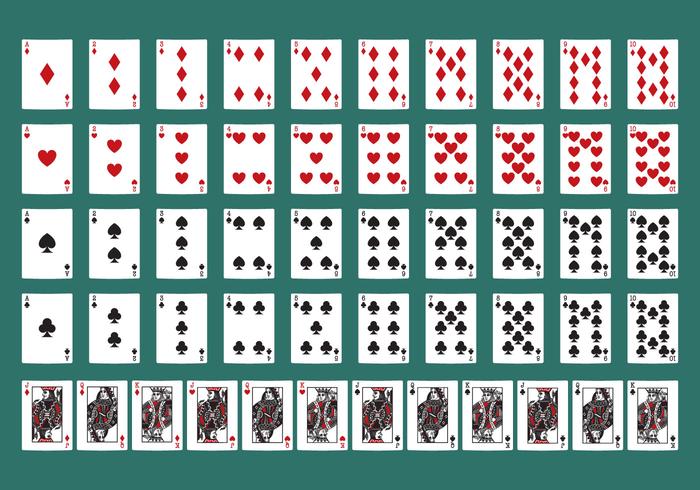Poker Card Hand Rankings
- Wild Card Poker Hand Rankings
- Poker Hand Rankings Chart
- 5 Card Poker Hand Rankings
- Wild Card Poker Hand Rankings
Most Commonly Asked Poker Questions
Not sure what beats a full house or what a straight can beat? Here are the answers to the most commonly-asked poker questions this side of the Strip.
Does a flush beat a full house?
Wild Card Poker Hand Rankings
No. A full house beats a flush in the standard poker hand rankings. The odds against making a full house in a game of Texas Hold’em are about 36-to-1, while the odds against making a flush are 32-to-1. The full house is a more rare hand and beats a flush.
At PokerStars, we deal many varieties of poker, some of which use different hand rankings. Hold’em, Omaha and Seven Card Stud all use the traditional ‘high’ poker rankings. Omaha Hi/Lo, Razz and Stud Hi/Lo use the ‘Ace to Five’ (‘California’) low hand rankings for low hands. Know your stuff? Play our interactive game at the bottom of this page. A high card hand consists of five cards that don’t make a pair or any other kind of made hand. The lowest-ranking hand in the poker hand rankings, high card hands can only beat other high card hands. Ace-high represents the strongest high card hand, while the lowest possible five-card high card hand is six-high. Starting ranks and pot odds will be covered soon, but first up, learning the slightly different hand rankings is a must -if you don’t know what wins and loses you’re in big trouble! Because the game is only played with 36 cards instead of the traditional 52 (all the 2’s, 3’s, 4’s.
Does a flush beat a straight?
Yes. Using the standard poker hand rankings, a flush beats a straight, regardless of the strength of the straight. The odds against making a straight in Texas Hold’em are about 21-to-1, making it a more common hand than a flush (32-to-1 odds against).
Does a straight beat a full house?
No. The odds against making a full house in Texas Hold’em are about 36-to-1, while the odds against making a straight are about 21-to-1. Both are strong five-card hands, but a full house occurs less often than a straight. A full house beats a straight in the poker hand rankings.
Does three of a kind beat two pair?
Yes. Both three of a kind and two pair can make a lot of money in poker, but three of a kind is the best hand when it goes head to head with two pair. The odds against making three of a kind in Texas Hold’em is about 20-to-1, while the odds against making two pair is about 3-to-1.

Does three of a kind beat a straight?

No. The odds of making both of these hands are very close in a game of Texas Hold’em. The odds against making a straight are 20.6-to-1, while the odds against making three of a kind are 19.7-to-1. The straight comes about slightly less often, making it the winner against three of a kind in the poker hand rankings.
Does a flush beat three of a kind?
Yes. The battle of strong hands between a flush and three of a kind sees the flush as the stronger hand. The odds against making a flush in Texas Hold’em are about 32-to-1, with odds against making three of a kind at around 20-to-1.
Does a straight beat two pair?
Yes. The poker hand rankings dictate that a straight is a stronger hand than two pair. The straight occurs with about 21-to-1 odds against in Texas Hold’em, while the odds against making two pair stand at about 3-to-1.
Does four of a kind beat a full house?
Yes. Both four of a kind and a full house are among the strongest poker hands, but four of a kind is a much rarer holding. Texas Hold’em odds against making four of a kind are 594-to-1, while you have about 36-to-1 odds against making a full house.
Does three of a kind beat a flush?
No. When the flush and three of a kind go head to head, the flush comes out as the best according to the poker hand rankings. The odds against making three of a kind sit around 20-to-1, with the odds against hitting a flush at 32-to-1.
Does a full house beat a straight in poker?
Yes. The full house comes in less often than a straight. In Texas Hold’em, the odds against drawing a full house are around 36-to-1, while the odds against making a straight are around 21-to-1.
Does a straight flush beat four of a kind?
Yes. Four of a kind is an exceedingly rare hand in poker, but the straight flush is an even more elusive five-card hand. The odds against making a straight flush in Texas Hold’em is about 3,590-to-1, much rarer than four of a kind (594-to-1 odds against)
A high card hand consists of five cards that don’t make a pair or any other kind of made hand. The lowest-ranking hand in the poker hand rankings, high card hands can only beat other high card hands.
Ace-high represents the strongest high card hand, while the lowest possible five-card high card hand is six-high. An example of a high card hand looks like this:
In a battle between two or more high card hands, the hand with the best high card wins. For example, A♠T♥8♦4♣2♣ beats K♠T♠8♥4♦2♥, as ace-high is stronger than king-high. If two high card hands go to battle at showdown and both have the same ranking top card, the second-highest card determines the winner.
Poker Hand Rankings Chart
How Does a High Card Hand Rank?
High card sits at the bottom of the poker hand rankings and loses to every other kind of made hand.
5 Card Poker Hand Rankings
If you draw five random cards from a 52-card deck, you have a 50.1177% chance of ending up with just a high card hand. In other terms, about half of all five-card hands are high card hands.
A standard 52-card deck yields 1,277 distinct ways to make a high card hand. Factoring in all possible suit combinations, there are 1,302,540 ways to draw a high-card hand from the deck.
In Texas Hold’em, you’re tasked with making the best five-card hand out of seven cards. With all five community cards on the board, you have a 17.4% chance of making a high card hand (4.74-to-1 odds against). One pair and two pair hands actually occur more often than high card hands in Texas Hold’em.
Wild Card Poker Hand Rankings
Despite this fact, however, high card hands still lose to pairs, two pair, and everything else above it in the poker hand rankings.